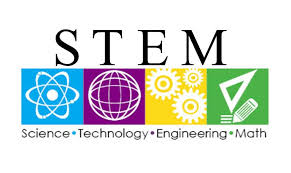Is charter school fraud the next Enron?

Preston Green III, University of Connecticut
In 2001, Texas-based energy giant Enron shocked the world by declaring bankruptcy. Thousands of employees lost their jobs, and investors lost billions.
As a scholar who studies the legal and policy issues pertaining to school choice, I’ve observed that the same type of fraud that occurred at Enron has been cropping up in the charter school sector. A handful of school officials have been caught using the Enron playbook to divert funding slated for these schools into their own pockets.
As school choice champions like Secretary of Education Betsy DeVos push to make charter schools a larger part of the educational landscape, it’s important to understand the Enron scandal and how charter schools are vulnerable to similar schemes.
What is a related-party transaction?
Enron’s downfall was caused largely by something called “related-party transactions.” Understanding this concept is crucial for grasping how charter schools may also be in danger.
Related-party transactions are business arrangements between companies with close associations: It could be between two companies owned or managed by the same group or it could be between one large company and a smaller company that it owns. Although related-party transactions are legal, they can create severe conflicts of interest, allowing those in power to profit from employees, investors and even taxpayers.
This is what happened at Enron. Because Enron wanted to look good to investors, the company created thousands of “special purpose entities” to hide its debt. Because of these off-the-books partnerships, Enron was able to artificially boost its profits, thus tricking investors.
Enron’s Chief Financial Officer Andrew Fastow managed several of these special purpose entities, benefiting from his position of power at the expense of the company’s shareholders. For instance, these companies paid him US$30 million in management fees – far more than his Enron salary.
Fastow also conspired with other Enron employees to pocket another $30 million from one of these entities, and he moved $4.5 million from this scheme into his family foundation.
Enron’s collapse revealed the weaknesses of the gatekeepers – including boards of directors and the Securities and Exchange Commission – that are responsible for protecting the markets. Because of lax accountability and federal deregulation, these watchdogs failed to detect the dangers posed by Fastow’s conflict of interest until it was too late. Congress responded by passing the Sarbanes-Oxley Act, which tightened the requirements for oversight.

AP Photo/Pat Sullivan
How do related-party transactions occur in charter schools?
Forty-four states and the District of Columbia have legislation that allows for charter schools. Just like public schools, charter schools receive public funding. However, unlike public schools, charter schools are exempt from many laws governing financial transparency.
Without strict regulation, some bad actors have been able to take advantage of charter schools as an opportunity for private investment. In the worst cases, individuals have been able to use related-party transactions to fraudulently funnel public money intended for charter schools into other business ventures that they control.
Such was the case with Ivy Academia, a Los Angeles-area charter school. The co-founders, Yevgeny Selivanov and Tatayana Berkovich, also owned a private preschool that shared facilities with the charter school. The preschool entered into a sublease for the facilities at a monthly rent of $18,390 – the fair-market value. The preschool then assigned the sublease to the charter school at a monthly rent of $43,870.
The Los Angeles district attorney’s office charged the husband-and-wife team with multiple counts of fraud. Selivanov was sentenced to nearly five years in jail in 2013.
Fraudulent related-party transactions can also occur between education management organizations (EMOs) and their affiliates. EMOs are for-profit or nonprofit entities that sometimes manage charter schools, and might also own smaller companies that could provide services to those schools.
For example, Imagine Schools is a nonprofit EMO that runs 63 charter schools enrolling 33,000 students across the country. It also owns SchoolHouse Finance, a for-profit company that, among other things, handles real estate for many of Imagine’s charter schools. Though charter schools typically spend around 14 percent of their funding on rent, some of the Imagine Schools were paying SchoolHouse Finance up to 40 percent of their funding for rent.
One of the charter schools operated by Imagine Schools, Renaissance Academy in Kansas City, sued the company for charging it excessive rent. In 2015, a federal judge agreed, ordering Imagine Schools to pay almost $1 million in damages to Renaissance. The court’s ruling suggested that Imagine Schools was essentially taking advantage of the charter school: The EMO profited from the excessive rent and failed to tell the school’s board of directors how the cost might disrupt the school’s ability to pay for textbooks and teacher salaries.

AP Photo/Orlin Wagner
The problem could get worse
Because of insufficient oversight, Fastow’s fraudulent use of related-party transactions at Enron was not stopped until it was too late. Similarly, the Ivy Academia and Renaissance Academy examples reveal insufficient checks and balances in the charter school sector. In both cases, the monitors responsible for protecting charter schools found nothing wrong with the rental agreements.
It might be tempting to conclude that Ivy Academia and Renaissance Academy stories are anecdotal – that fear of widespread abuse of related-party transactions is overblown. However, there have been dozens of allegations of similar transgressions, including against industry giants such as K12 Inc. and Pennsylvania Cyber Charter School. Though only a handful of these allegations have resulted in the removal of the charter school operators, related-party fraud in the charter school sector is an emerging issue.
In September 2016, the Education Department’s inspector general released the findings of an audit of several dozen charter schools detailing significant problems with related-party transactions.
The report also made several recommendations for additional oversight. Such protection could come at the state level (e.g., providing guidance to states regarding charter school contractual agreements with EMOs) or at the federal level (e.g., improving the Department’s own monitoring of charter school-EMO relationships).
However, Trump has generally expressed a dislike of federal regulations, and DeVos, who played a major role in the development of Michigan’s charter school law, has successfully fought attempts to increase oversight of Michigan’s charter school sector. With such anti-regulatory stances, it seems unlikely that Trump or DeVos will support the kind of oversight that’s needed to protect charter schools.
![]() This aversion to regulation at the federal level could cost taxpayers millions of dollars and could result in the closing or disruption of schools – potentially damaging the education of students they serve. Since charter schools are growing fastest in low-income and minority communities, these children stand to be hurt the most.
This aversion to regulation at the federal level could cost taxpayers millions of dollars and could result in the closing or disruption of schools – potentially damaging the education of students they serve. Since charter schools are growing fastest in low-income and minority communities, these children stand to be hurt the most.
Preston Green III, John and Carla Klein Professor of Urban Education, Professor of Educational Leadership and Law, University of Connecticut
This article was originally published on The Conversation. Read the original article.





